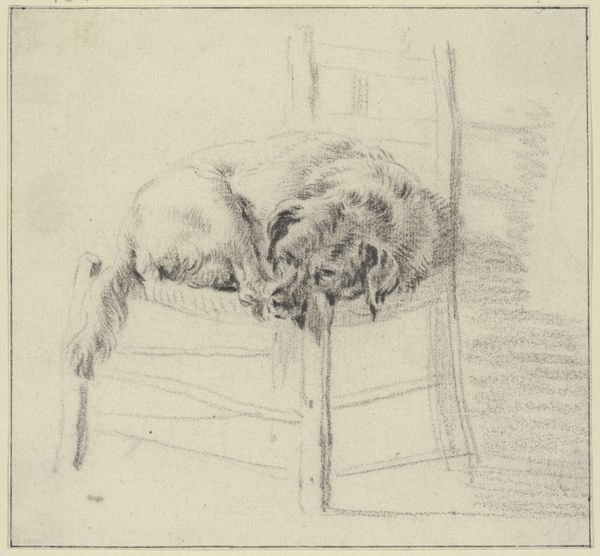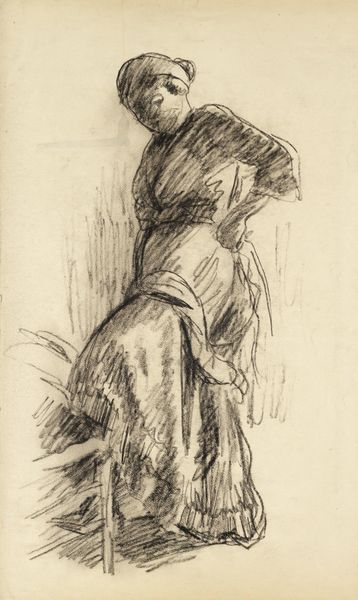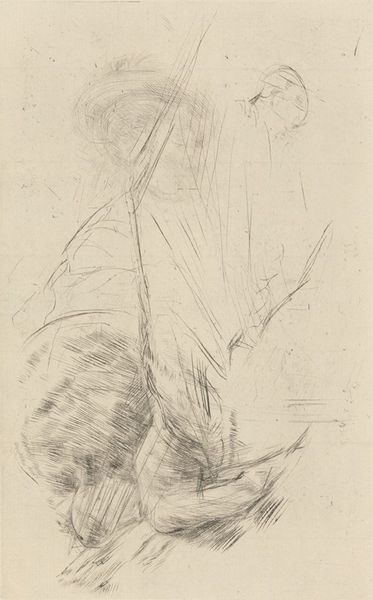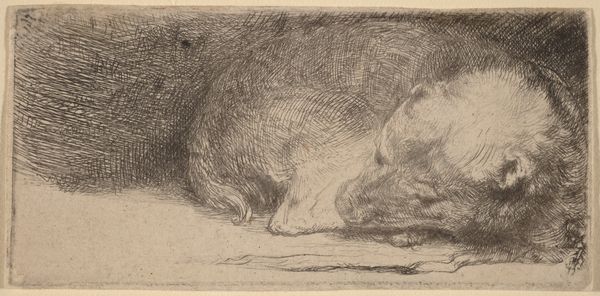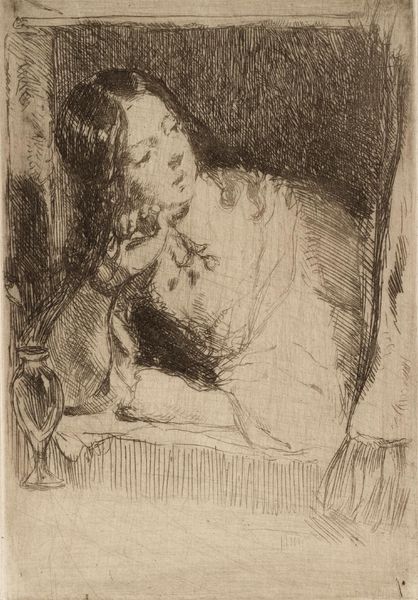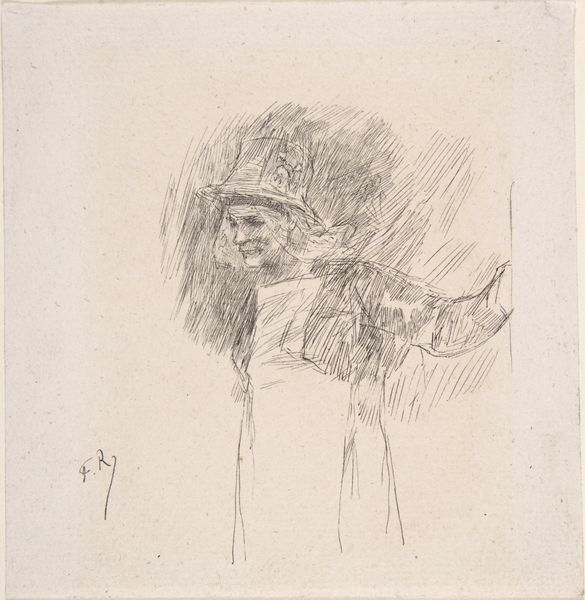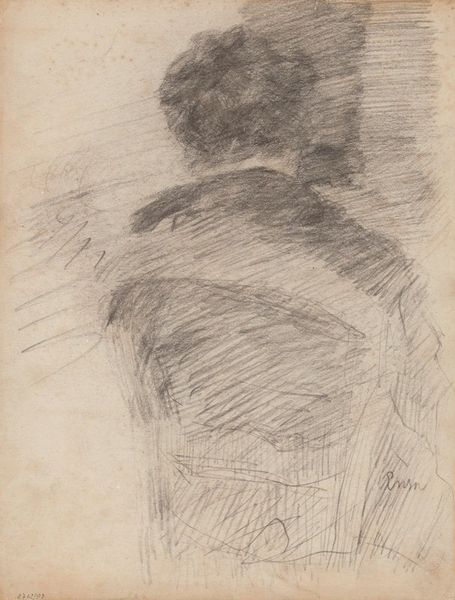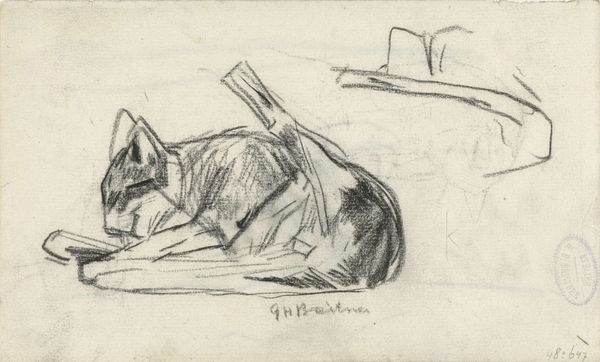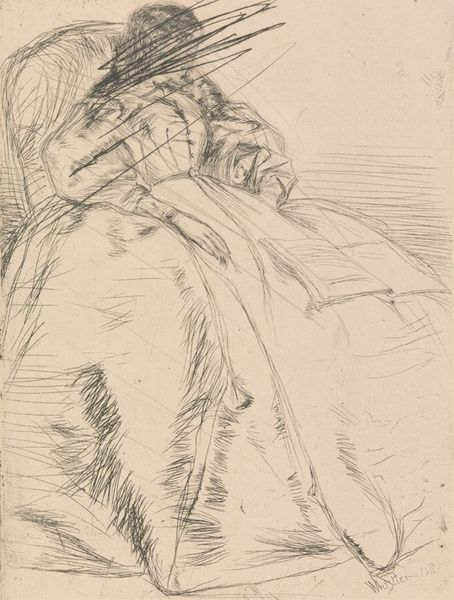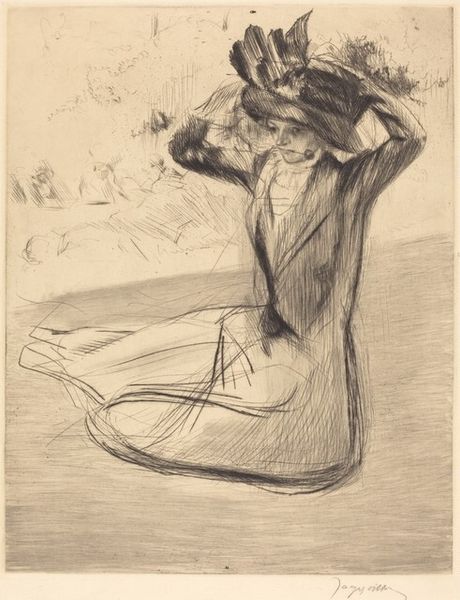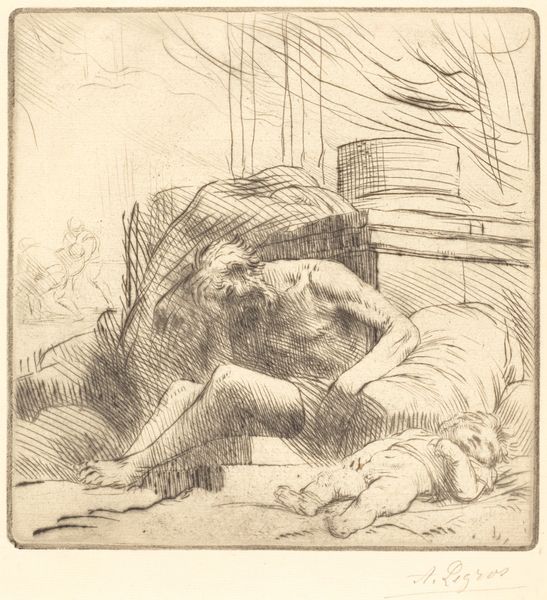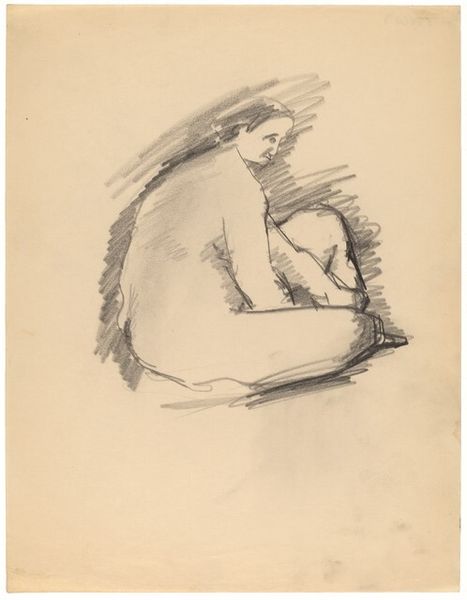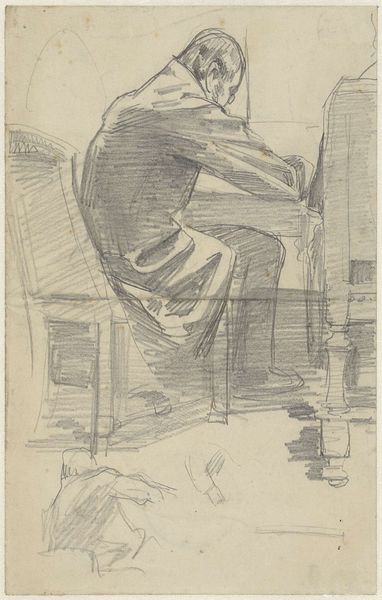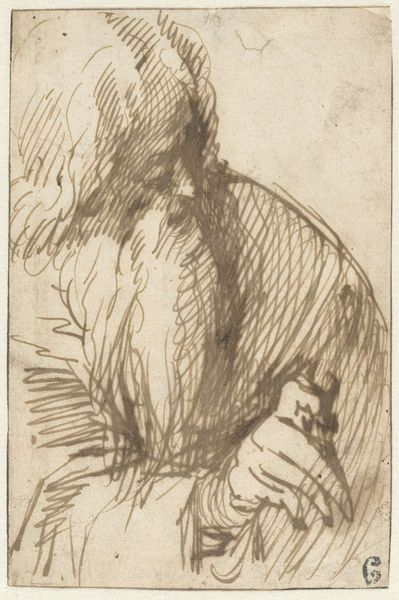
Copyright: Public Domain: Artvee
Curator: Right now, we’re looking at Jean-Louis Forain’s 1910 pencil drawing, “It’s Over!”. It depicts two figures seated at a table, rendered in the impressionistic style for which Forain is known. Editor: Oh, it feels so melancholic! You can almost hear the silence hanging between them, thick as cigarette smoke in a Parisian café. It's like the last scene of a sad play. Curator: Exactly. This drawing resonates deeply with themes of alienation and disillusionment prevalent at the turn of the century. The woman, elegantly dressed, seems lost in thought, while the man beside her is shrouded in shadow. We might consider how Forain uses shadow to portray this male figure, perhaps showing him consumed by regret. What roles are the characters fulfilling here, within their specific moment in time? Editor: It really hits you, doesn’t it? I'm picturing the woman – maybe she’s dreaming of escaping, trading it all for adventure, you know? You can't tell if she feels sad or just numb, like she has been defeated after a battle of wills. Curator: Yes, the ambiguity is powerful. This aligns with impressionism's emphasis on capturing fleeting moments and subjective experience, inviting viewers to engage critically and empathetically. It seems to reveal a candid critique on social constructs such as marriage. Are they truly a portrait of this specific couple, or, perhaps, of something more widespread? Editor: I love that you frame it that way. Makes me feel like maybe she’ll toss back that glass, tell him off, and walk out! It's funny how a few lines can say so much. Forain really nailed capturing a complex human story here, don't you think? It almost inspires me. Curator: I concur entirely; that the power of this work rests in its capacity to depict complex social relations using sparse artistic techniques, enabling sustained commentary across time. It asks us to question: how has social expectation for marriage and its participants changed? Or, in many instances, stayed fundamentally the same? Editor: Hmm, makes you think about those heavy unspoken words, even in our own time, doesn’t it? Makes you wonder how much we have learned and how much farther we still need to go. Thanks for untangling it a bit!
Comments
No comments
Be the first to comment and join the conversation on the ultimate creative platform.
